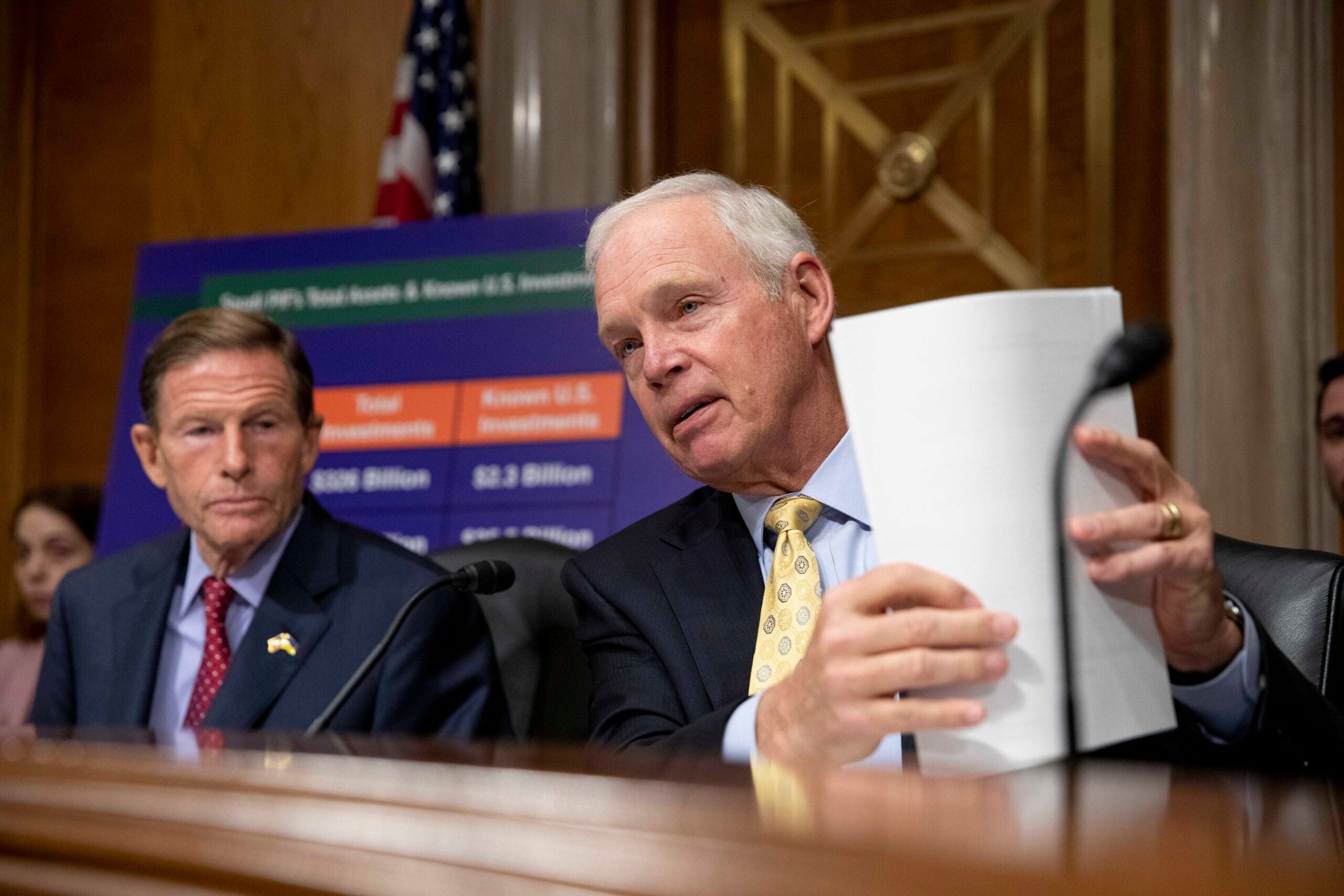Last year, a normally benign bacteria killed 18 people in Wisconsin. We check up on how the state responded to the outbreak, if any cases persist, and the advice being given on how to avoid infection. We also hear about tension in the State Department that’s led to resignations and a letter of dissent to the White House. Plus, a closer look at President Trump’s plan to privatize air traffic control.
Featured in this Show
-
U.S. Ambassador To China Announces Resignation
The United States top diplomat to China announced his resignation yesterday, according to reports, his departure was over President Donald Trump’s decision to withdraw from the Paris Climate Agreement. We talk to a diplomatic reporter about friction between U.S. diplomats abroad and the White House.
-
Under President Trump, Tensions Grow Between Diplomats And White House, Journalist Says
On Monday, acting U.S. ambassador to China David Rank resigned. Sources say he left because of President Donald Trump’s decision to withdraw from the Paris Climate Agreement.
Rank allegedly told his staff he could not defend the withdrawal. Rank was set to be replaced by Iowa Gov. Terry Branstad, who was confirmed by the Senate last month, but is not yet in China.
Reuters diplomatic correspondent Arshad Mohammed said it’s rare for an American diplomat to pull out of their job the way Rank resigned from his post in Beijing.
“It’s a very surprising thing for somebody who’s been an American diplomat for as long as he had been — more than 20 years — to resign over policy,” Mohammed said.
Diplomats are non-partisan, which is part of their job. Mohammed said he’s covered the State Department for more than 15 years, and he still doesn’t know the political views of the majority of the diplomats on whom he’s reported.
“Most of them take it as a point of pride that they’re not going to tell you whether they’re a Democrat or Republican, a number of them that I’ve actually talked to about this over the years say they’re independent, that’s deliberate,” he said. “Their purpose is to serve whoever is the president who happens to be in power.”
Mohammed said it’s clear that there’s tension between diplomats, the State Department and the White House on a whole host of issues.
“American diplomats say privately that they find it very hard to defend positions that the current administration has taken,” he said.
The reporter gave the example of the letter of protest written by hundreds of American diplomats and other state department officials against President Trump’s original travel ban in January.
“Those kinds of protest letters are rare, they’re usually signed by one or two or a handful, or maybe a dozen people, and for a thousand people to say, ‘We’re opposed to this’ is a really powerful signal,” Mohammed said.
Another recent point of tension between American diplomats and the White House comes from a recent tweet. Acting ambassador to Britain Lewis Lukens tweeted his support of London Mayor Sadiq Khan after a deadly terrorist attack there. On that same day, Trump had picked a fight with Khan on Twitter.
Mohammed said what Lukens did would have seemed completely normal in any other era. He added that at this point in time, it’s difficult for career civil servants to know what to do or say.
In the aftermath of the letter that about a thousand diplomats signed, the White House said those who disagree with the administration’s policy need to get with the program or go.
“Either you do as the president asks, or if you feel that you can’t, you make the decision that Mr. Rank did in Beijing and you retire,” Mohammed said.
-
Looking Back On The Elizabethkingia Outbreak In Wisconsin
In Wisconsin, 18 people were killed by a normally benign bacteria called Elizabethkingia anophelis. We speak with Scott Gordon of Wiscontext about what has happened in the year since the outbreak and how Wisconsin officials reacted to the public health crisis.
-
President Trump's Plan To Privatize Air Traffic Control
On Monday President Trump announced his plan for overhauling the Federal Aviation Administration, or FAA. That agency is responsible for all aspects of civil aviation. Part of the plan includes privatizing the agency’s air traffic controllers. We talk to an expert about the details of the plan and how it could affect consumers.
-
A Look At President Trump’s Air Traffic Control Privatization Proposal
President Donald Trump announced plans this week to privatize United States air traffic controllers and move them from the Federal Aviation Administration to a private nonprofit organization.
Trump said the change will help modernize air traffic control and increase airlines’ efficiency, including less waiting around at the airport and fewer delays.
Although the idea of privatizing air traffic control is controversial — Congressional Republicans last year tried to do the same thing and failed — it’s not a new idea, said Ashley Nunes, a research scientist at Massachusetts Institute of Technology’s Center for Transportation and Logistics.
“The idea itself of privatizing air traffic control goes back some 30 years, back when Ronald Reagan was president. And at that time, his Commission on Privatization identified air traffic control as being an industry that was essentially ripe for outsourcing,” Nunes said, who recently wrote about the issue in the Washington Post.
Trump said in his announcement that privatizing would “take American air travel into the future, finally.”
And it’s true that bureaucratic inertia has made it difficult for the industry to have up-to-date technology, Nunes said. He gave the example of radar. U.S. air traffic controllers use World War II-era radar systems to track planes, even though more advanced GPS technology is ubiquitous, he said.
“But unfortunately — and this is the charge that critics level at the agency — government bureaucracy just makes it very difficult to acquire these types of technologies. And very often, by the time the technology has been acquired, the technology itself is obsolete,” Nunes said.
Some critics are concerned privatization will result in lax safety standards; when making profits is the goal, strict safety standards may be in jeopardy.
But safety is actually a “red herring” issue, Nunes said. Both sides of the debate say their way of doing it results in improved safety. But the increased safety in air travel over the past few decades is squarely because of advancements in technology, and has nothing to do with whether the industry is privately or publicly run, he said.
“Air traffic controllers are professionals, and they have an interest in making sure the skies are safe, regardless of if they are private or government employees,” he said.
The idea actually has “tepid support” from a place you might not expect it — air traffic controllers themselves. That’s because of assurances from lawmakers that they’ll retain benefits and pensions if privatization does occur, Nunes said.
On the opposing side are private operators and smaller airports.
“There certainly is reason to worry,” Nunes said.
As a result of increased fuel volatility and airline mergers, airlines already concentrate where they deploy their planes, and tend to favor revenue-rich markets in major cities, Nunes said.
That’s because it’s less fuel-efficient for airlines to fly to small-market airports, and fuel tends to be the greatest operating expense for airports, Nunes said.
“I think smaller airports are certainly worried, because essentially what they might lose is the political capital to be able to preserve service at their facilities,” he said. “I think there are very legitimate reasons to look for an alternative form of governance, preferable a model that delivers maximum value to the people who are actually paying for the service.”
The proposal still has to make it through Congress, where it’s likely to face staunch opposition from Democrats.
Episode Credits
- Rob Ferrett Host
- Veronica Rueckert Host
- Haleema Shah Producer
- J. Carlisle Larsen Producer
- Amanda Magnus Producer
- Arshad Mohammed Guest
- Scott Gordon Guest
- Ashley Nunes Guest
- Rob Ferrett Interviewer
Wisconsin Public Radio, © Copyright 2025, Board of Regents of the University of Wisconsin System and Wisconsin Educational Communications Board.


